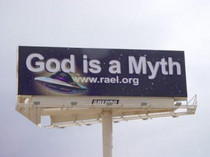Forget the nationwide debate raging over gay marriage. Set aside this nation’s two ongoing wars (three, if you count Libya). Don’t even worry about our country’s bloated government spending, its yawning black hole of debt and an economy still on its knees, or high unemployment.

Christians are concerned about all those things, of course. But some of us seem to have found a new cause, one that, to some, poses nothing less than a hellfire-and-damnation spiral into the heresy of the ages. Yes! That would be the newest version of the NIV (New International Version) translation of the Bible.
One site goes so far as to flatly state: “If you are using the New International Version (NIV) of the Bible . . . then you are truly blinded by Satan, or just don’t care.”
Indeed, some of the more extreme folks screaming about the new NIV are almost as vitrolic about any translation of the scriptures other than the “inspired” 1611 King James Version. After all, it also has “Authorized” in its title.
(Actually, then, the KJV was “authorized” by the same monarch who relished in conducting witch hunts, personally supervising torture to extract “confessions,” and a king who claimed divine sanction for his absolute, often tyrannical rule).
The “King James Only” (KJO) folks hate anything that smacks of gender inclusive changes (such as including “sisters” along with “brothers” to reflect the intent of Jesus and his disciples to apply spiritual principles to all believers, rather than just male references, as was typical of patriarchal, Middle Eastern culture 2,000 years ago). They also aren’t fond of changing “thee” and “thou” to the less-archaic “you,” or “Holy Ghost” to “Holy Spirit,” etc.
To be sure, they have other gripes, too. NIV is purposely deleting verses, they cry. Actually, noting access to Greek manuscripts older than those used by KJV scholars, NIV translators have relied on those more-ancient sources — while including, as footnotes, the likely corruptions KJV included using its later source materials. (Now there’s irony; but no one is arguing that the KJV is heretical because it differs from even earlier versions provably closer in time to the original autographs).

Oh, perhaps one of the wildest claims is that the new NIV is somehow less condemning of homosexuality than the “pure” KJV. Odd, that, since historians now have strong suspicions that King James himself was, using the modern term, “gay.” That he enforced England’s anti-sodomy laws for the common folk apparently did little to cool his own same-sex ardor.
Is the NIV perfect? Of course not. There is not a translation of the Bible existing that can truly claim to be a 100 percent accurate, word-for-word translation of the first Hebrew scrolls etched on lamb skins, or the Greek written by Peter, Paul, John and other followers of Christ in the First Century. At the very least, idioms and cultural metaphors used then have faded with time and meanings have become obscured.
And if antiquity is the argument of KJO folks, then what of English translations predating KJV? The Tyndale/Coverdale version was in use by the mid-1500s, and there were several others, including the Geneva Bible, widely accepted as authoritative until King James put the power of his throne behind his translation.
What is the most accurate version? Many scholars see the 2001 English Standard Version as the best, most recent candidate, while the 1983 New King James Version maintains a large following. Along the accuracy-to-readability continuum are numerous other translations and paraphrases, ranging from the New American Standard and New Revised Standard versions to so-called “thought-for-thought” editions like the New Living Translation and The Message Bible.
As a preacher’s kid, I was taught out of, and memorized Sunday School verses from the KJV. But Dad never considered KJV as the “final word” on the Word. His library contained dozens of translations, and he was as apt to quote from any one or several of them in a sermon, whichever version seemed clearer.
And, he’d had a good laugh, privately, after hearing a parishioner complain that he was on dangerous ground by not sticking to the KJV. Such dire warnings were usually accompanied by a declaration akin to, “The King James Bible was good enough for the Apostle Paul, so it’s good enough for me!”
Either Paul was a time traveler, or . . . . Nevermind.
Here’s my take: If I want to emphasize academic accuracy, I’ll likely open the ESV. If I want poetry and feelings of majesty, then the KJV will do nicely (for the same reason, in part, that I’ll read Shakespeare’s Romeo and Juliet if I want that 16th Century, Vernona, Italy, flavor rather than watch West Side Story, a musical adaptation set in New York City).
If I want something in between those two, NIV or the New KJV will do nicely. For just daily, inspiration, though, I will go with the NLT or Message.
They all have their strengths, and perhaps in terms of accuracy or readability, weaknesses. Kind of like all of us.
The point for a Christian is that it’s probably a good thing to be familiar with what we claim is God’s life instruction book. So, read it . . . in whatever form touches you most deeply.

